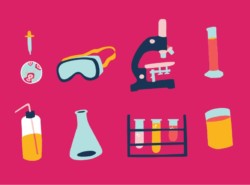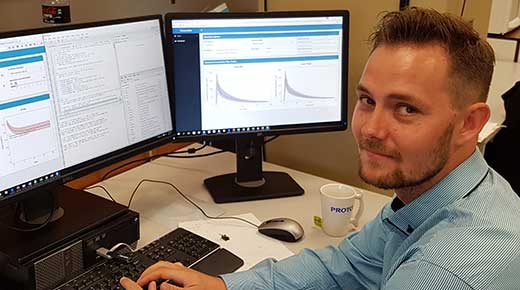
Predicting good and bad outcomes from metastatic breast cancer treatments
Published: 10/10/19 12:21 AM

Ashley Hopkins
Research has improved the success rate of breast cancer to 90 per cent, but for women with metastatic breast cancer (when the cancer has spread beyond the breast) modern treatments are only able to prolong life, not stop the cancer progressing.
Targeted therapies are a new class of medicines that have improved the survival and quality of life of breast cancer patients. Targeted therapies are among the last treatment options for metastatic breast cancer patients in the very advanced stages of the disease, and while some patients experience substantial benefit from these medicines, unfortunately, many others either do not respond or experience severe toxicity.
In this project, Dr Ashley Hopkins will use advanced mathematical techniques aiming to identify predictors of good and bad outcomes to targeted therapies used
in metastatic breast cancer. Dr Hopkins will analyse data that has been collected across a series of clinical trials on targeted therapies to determine who responded well and why, so these drugs can be more accurately prescribed.
Dr Hopkins intends to share the study results so that clinicians and breast cancer patients can assess the benefit and risks of these treatments – such as the likelihood of a positive outcome weighed up against the drugs toxicity.
This type of information can help guide treatment decisions that may improve response rates and decrease toxicity to specific therapies, provide an indicator of when to use alternate therapies or focus on palliative care, which may also lengthen the survival of cancer sufferers.
If the success rates of targeted therapies can be improved, they could be included as options in standard care within the next 10 years, helping to successfully treat women with metastatic breast cancer.